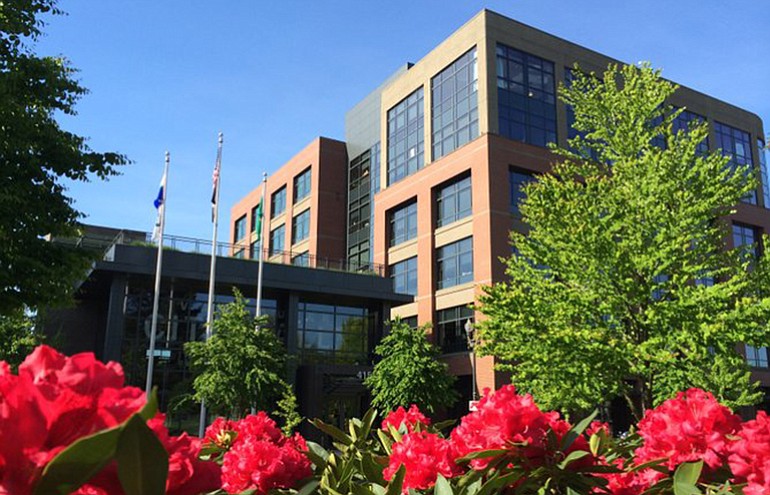A plan to increase the city’s property tax levy and utility rates was advanced Monday by the Vancouver City Council.
On Monday night the council did not discuss the proposals but did set a public hearing for 7 p.m. Monday, Nov. 3, at City Hall, 415 W. Sixth St. The council will vote on those increases at the same meeting.
The proposals would increase the property tax levy the maximum 1 percent allowed under state law. Water and stormwater rates would each increase 5 percent in 2015 and 2016 and sewer rates would increase 2 percent each year.
The proposed increases were reported in June following City Manager Eric Holmes’ first workshop with the city council about setting the framework for the 2015-16 budget.
During that June 16 workshop, Holmes said inflation and population growth have been driving Vancouver’s costs up by about 4 percent a year, outpacing 2.4 percent revenue growth.
Even if the council enacts levy and utility rate increases every year, the city still has a forecasted deficit of $10.2 million by 2020, Holmes said.
The city’s annual general, street and fire funds equal about $175 million a year.
The 1 percent levy increase would bring in approximately $433,000, according to a report from Holmes to the city council.
And what would it look like for homeowners? The example in Holmes’ report used the owner of a home with an assessed value of $200,000. Assuming the assessed value increases by 9.4 percent next year, the owner would go from paying $604.40 in city property taxes this year to $612.64 in 2015. If the assessed value of the home declined or remained the same, the increase would be less. If the assessed value increased by more than 9.4 percent, the increase would be more than $8.24.
Property taxes are the largest revenue source for funding city services, Holmes noted in the report.
Increasing utility (combined water, sewer and stormwater) rates, meanwhile, would mean an extra $2.05 a month for typical city residential customers and an additional $2.17 a month in 2016.
The increases would allow the council to use revenues, not debt, to replace aging infrastructure, according to a report by Holmes. That fits with the council’s pay-as-you-go policy.
Even with the rate increases, bills for city residents compare favorably to other jurisdictions, Holmes noted.
The report included a comparison of what single-family residential customers in 18 places in Washington and Oregon paid in monthly utilities. It showed Vancouver city residents with the lowest rate, $62.68 a month. Even with increases to $64.73 in 2015 and $66.90 in 2016, the city would still have among the lowest rates. Residents in unincorporated Clark County who get water from Clark Public Utilities and other services from Clark Regional Wastewater District have an average monthly bill (for 2015) of $65.13. Washougal residents had the highest utility rates in Clark County, with an average monthly bill of $97.70. Bellevue ($139.20 a month) and Portland ($153.22) topped the list.




